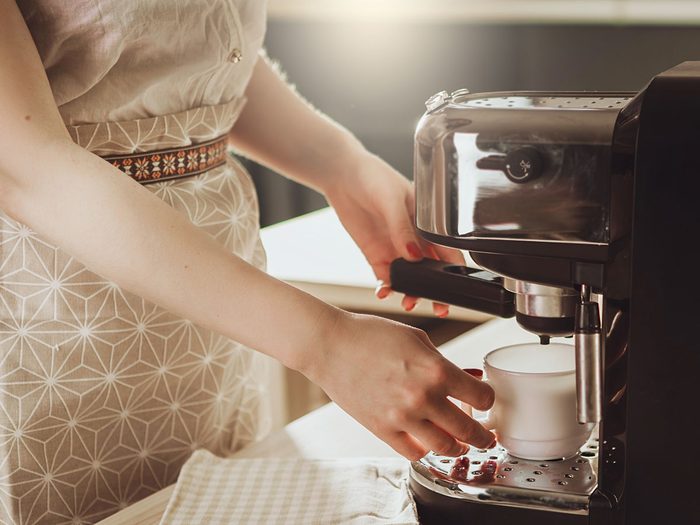
Your Coffee Maker
Nothing’s more comforting than a cup of coffee in the morning, but here’s a not-so-comforting fact: Your coffee machine’s water reservoir is the fifth germiest item in your home, according to tests done by NSF International, formerly known as the National Sanitation Foundation. Because it’s warm and damp, a coffee reservoir is an ideal environment for coliform bacteria, yeast and mould to flourish.
To keep germs out of your morning cup of joe, it’s a good idea to give the reservoir a good cleaning once a month. Just fill it with vinegar, let it sit for about 30 minutes, then run the vinegar through the machine. You’ll want to run a couple of batches of water through after that to rinse away any lingering traces of vinegar.
Don’t have time to clean your coffee maker? Make this tonifying coffee-like bevvy instead.
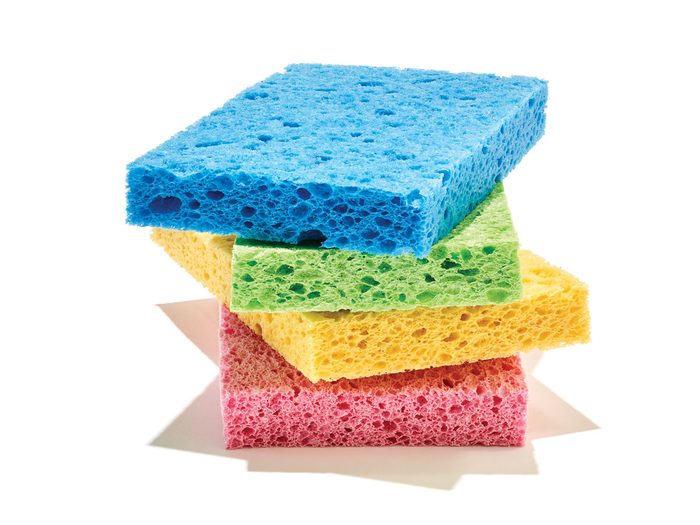
Your Dish Sponge
Did you know that the sponge you rely on to keep your kitchen surfaces clean is actually the grossest item in your house? According to NSF International, dish towels and sponges are the worst household offenders for germs and can contain yeast, mould and even staph bacteria. To prevent illness, replace washable dishcloths every two days (after laundering on the sanitizing cycle) and place your wet sponge in the microwave oven for two minutes every day and replace it every two weeks. Here are 11 more everyday items that you don’t wash nearly enough.
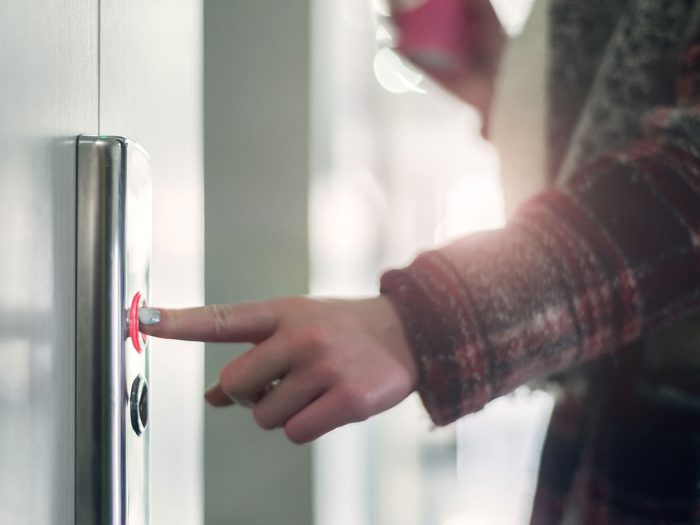
An Elevator Button
A study found that 61 percent of elevator buttons had microbiological growth, while just 43 percent of toilet surfaces were breeding germs. Staph and strep are among the bacteria strains that could be contracted at the touch of a button. To avoid the spread, use a pen or your elbow to press your button, and apply hand sanitizer once you get to your floor. And if you’re visiting a hospital, these 10 places have the most germs.
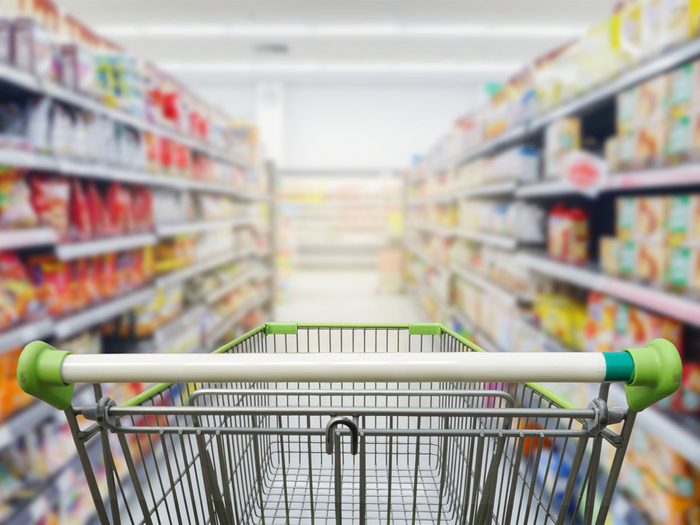
Your Grocery Cart
Studies have shown that the handle of your grocery cart has more bacteria than any surface in a public restroom. The germs range from salmonella (thanks to raw meat) to E.coli (from unwashed hands). What’s a shopper to do? Many stores offer cleaning wipes so you can kill bacteria before your trip around the store. Plus, it’s a good idea to wash your hands as soon as you get home. (Ended up catching a cold? Here’s the perfect remedy to kick it to the curb.)

Your BBQ
When’s the last time you cleaned your BBQ? According to a UK study, the grill where you cook your burgers hosts twice as many germs as a toilet seat. Even those that look clean can be infested with listeria, salmonella and E. coli. Wash your grates regularly (at least a couple of times a season) and fire the grill for a while before putting any food on to let the heat burn away lingering germs. Then, fire up the grill for this Tangy Cider Can Chicken Recipe.

Your Desk
Yep, your work could be making you sick. According to microbiologist Michael Loughlin, the biggest sources of germs on your desk are items you use most: your keyboard, phones, pens and coffee mugs (if they’re not cleaned properly). Luckily, these items are easy enough to wipe down. Just remember to do so regularly! Here are 5 signs you should call in sick to work.
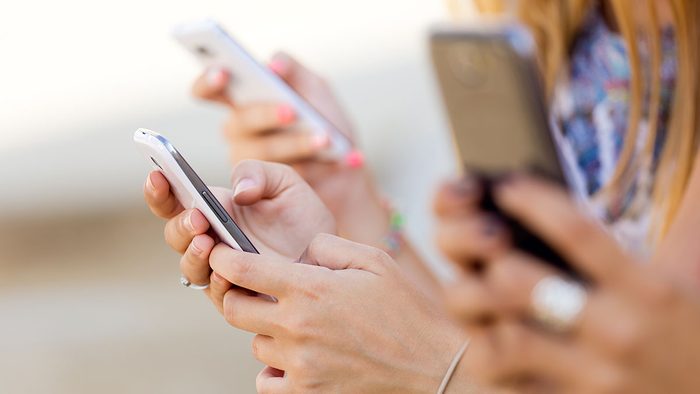
Your Smartphone
One of your most prized possessions is likely one of the dirtiest. Since your smartphone has such close contact with your hands and mouth, and it travels just about everywhere you do, it’s absolutely riddled with germs, including E. coli, staph, and strep. In fact, one study found that cell phones carried 10 times more bacteria than a toilet seat. Remember to clean it frequently. Don’t miss the real reasons why texting may actually be bad for your health.
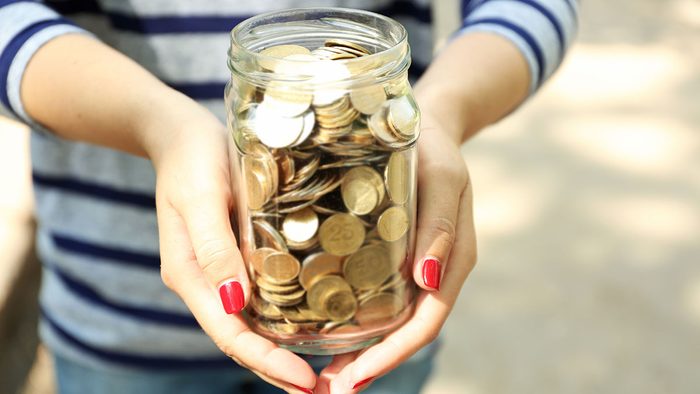
Your Money
Think about every kind of germ you come in contact with in a given day — from the bathroom to the bus. Just about every one of them can be found in your wallet. A 2017 study of cash found viruses, bacteria and fungi typically found on skin, in mouths and even in vaginas all mingling on the bills along with human and pet DNA. In fact, if you could see all the organisms living on there, you might just choose credit over cash — or at least wash your hands after paying.
What happens when you don’t wash your makeup tools regularly? Check out these 10 nasty consequences.
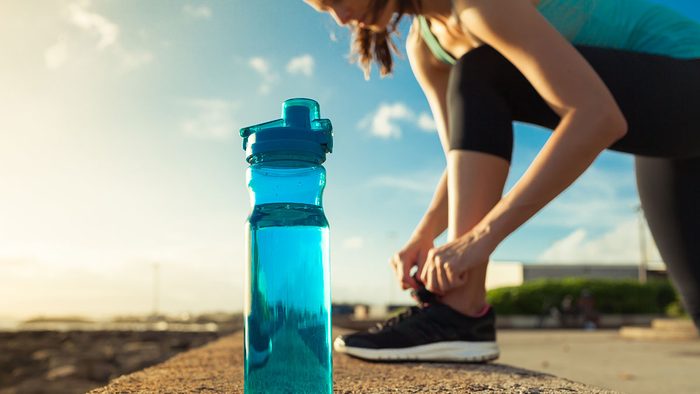
Your Water Bottle
You’re doing a good thing by drinking from a reusable water bottle and not dumping plastic into landfills after every drink, but for a clean solution, water bottles are shockingly dirty. Swabs from the water bottles of 12 athletes found that they contain 100 times more bacteria than the average dog toy. Don’t forget to wash your water bottle regularly and thoroughly, especially around the mouthpiece where the germs collect most. And if you’re drinking tap water, here are 5 things you need to know.
